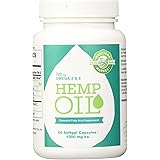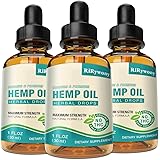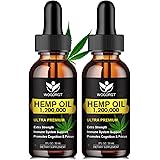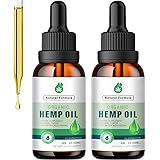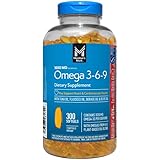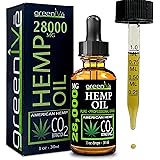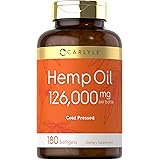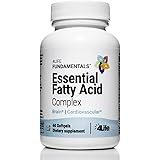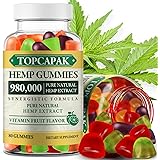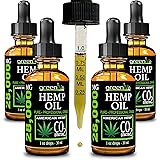Navigating the world of healthy cooking oils can often be a source of confusion for many. With an abundance of options available, understanding each oil’s unique properties and best uses is absolutely essential for culinary success and optimal nutrition. The video above introduces one such intriguing option: hemp seed oil, highlighting its distinct characteristics.
This comprehensive guide delves deeper into the versatile nature of hemp seed oil, expanding on its nutritional benefits, appropriate culinary applications, and what to look for when making a purchase. It is hoped that a clearer understanding of this remarkable plant-based oil will be gained, empowering more informed choices in the kitchen.
Understanding Hemp Seed Oil: Production and Nutritional Profile
Hemp seed oil is produced through a straightforward mechanical process, primarily by pressing the seeds of the hemp plant. This method is often referred to as cold-pressing, which helps to preserve the delicate nutrients and natural flavors of the oil. Unlike some other parts of the hemp plant, the seeds themselves contain negligible amounts of THC, ensuring the oil is non-psychoactive and completely safe for consumption.
The nutritional benefits offered by hemp seed oil are quite impressive, making it a valuable addition to a balanced diet. It is particularly revered for its rich profile of essential fatty acids, including omega-3 and omega-6, often present in an ideal ratio for human health. These fatty acids are crucial for various bodily functions, ranging from supporting heart health to reducing inflammation.
A Unique Plant-Based Source of Vitamin D
A notable characteristic of hemp seed oil, as touched upon in the video, is its distinction as one of the very few plant sources containing naturally occurring Vitamin D. This fat-soluble vitamin plays a critical role in bone health, immune function, and overall well-being. Imagine if achieving your daily Vitamin D intake could be complemented by simply drizzling a delicious oil over your salad.
For individuals adhering to vegetarian or vegan diets, or for anyone seeking to diversify their Vitamin D sources beyond animal products and sunlight exposure, hemp seed oil presents an exceptional opportunity. While the exact concentration can vary, its presence in a plant-based oil is considered a significant nutritional advantage. This makes it an especially attractive option for those conscious of their nutrient intake.
Culinary Applications: Embracing Hemp Seed Oil’s Low Smoke Point
One of the most crucial points to grasp about hemp seed oil is its very low smoke point. This property dictates how it should be used in the kitchen and, as highlighted in the accompanying video, explicitly rules out high-heat cooking methods such as frying. When oils are heated past their smoke point, they begin to break down, release harmful compounds, and lose their nutritional value, alongside developing an unpleasant flavor.
Therefore, hemp seed oil is best reserved for dishes where it will not be subjected to intense heat. Its vibrant, often greenish hue and nutty, earthy flavor are best appreciated when raw. This is where its versatility truly shines, allowing its unique taste and nutritional properties to enhance a wide array of recipes without degradation.
Perfect for Dressings, Smoothies, and Finishing Touches
The video correctly identifies salad dressings and smoothies as ideal applications for hemp seed oil. In salad dressings, it can be combined with vinegars, herbs, and spices to create a flavorful and nutrient-dense base. Its distinctive flavor pairs wonderfully with fresh greens, vegetables, and even fruit-based salads, adding a layer of sophistication.
When incorporated into smoothies, it effortlessly blends with fruits, vegetables, and protein powders, boosting the nutritional content without overpowering other flavors. Imagine starting your day with a smoothie fortified with essential omegas and Vitamin D from this wonderful oil. Furthermore, hemp seed oil can be drizzled over cooked dishes just before serving, acting as a finishing oil. It works well over roasted vegetables, pasta dishes, or even soups, adding a fresh, nutty aroma and valuable nutrients.
Interchangeability with Olive Oil in Specific Uses
A less commonly known fact, yet an important one, is the interchangeability of hemp seed oil with olive oil in certain applications. This comparison specifically pertains to cold uses, such as in vinaigrettes or as a dipping oil. Both oils offer distinct flavor profiles, but their structural role in unheated preparations can often be similar.
However, it is paramount to reiterate that this interchangeability does not extend to cooking methods involving heat. While olive oil has a higher smoke point that allows for some sautéing or light frying, hemp seed oil must always be kept away from direct heat to preserve its integrity and beneficial compounds. Considering this distinction is key to utilizing both oils effectively.
Choosing Quality Hemp Seed Oil: What to Look For
As with many specialty oils, the quality of hemp seed oil can vary significantly, impacting its flavor, nutritional value, and shelf life. The video wisely advises consumers to look for specific markers of quality to ensure they are purchasing the best product available. Making an informed choice at the grocery store or online ensures maximum benefit from this valuable ingredient.
The Importance of Cold-Pressed, Organic, and Natural Varieties
When selecting hemp seed oil, prioritizing cold-pressed varieties is strongly recommended. The cold-pressing method involves minimal heat during extraction, which is crucial for retaining the oil’s delicate nutrients, enzymes, and antioxidants. Oils extracted using high heat or chemical solvents can be stripped of these beneficial compounds and may even contain residual chemicals.
Opting for organic and natural certifications further assures that the oil has been produced without the use of synthetic pesticides, herbicides, or genetically modified organisms. This commitment to purity means that the oil will be free from undesirable contaminants, providing a cleaner and healthier product. Always check the labels for these important indicators of quality, ensuring that a premium hemp seed oil is selected for culinary endeavors.


